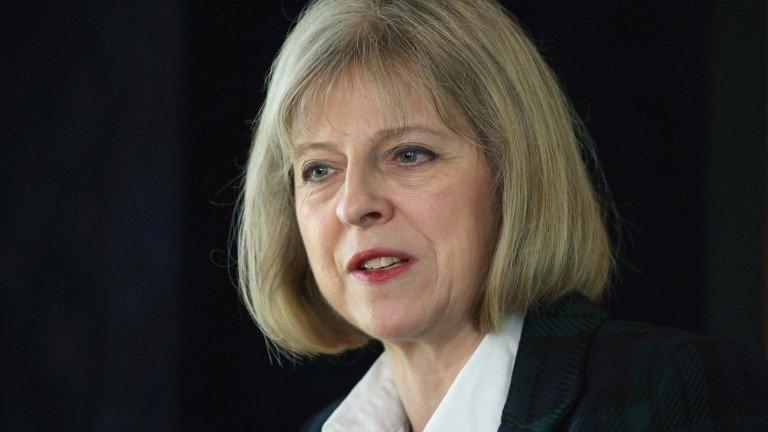Theresa May and Michael Gove: How the political storm broke
- Published
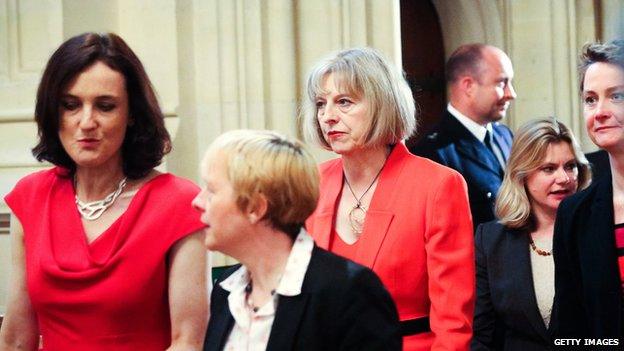
Theresa May was on the front page of The Times on the day she attended the state opening of parliament
The night before the Queen's Speech I was on a late shift at Westminster.
Given that the next morning Her Majesty would be heading to parliament to read out the government's "to do list", I imagined I would just be filing something on that for the Today programme, Breakfast television, Radio 2 and 5 live.
But it didn't turn out quite like that.
It started when the front page of The Times popped into my inbox.
Two members of the cabinet, Michael Gove and Theresa May, were "at war" with each other, it claimed.
It was known at Westminster they had their differences.
But I'll be honest - I thought the headline was a bit of an exaggeration and the quotes were all off the record.
At gone 11pm, I didn't expect those around the home secretary and education secretary to return my calls.
'Furious'
Not least because, whilst I seem to spend more time speaking to special advisers than I do to my own family, Fiona Cunningham - Mrs May's special adviser - had never returned my calls in more than two years.
But, this time, she did. Not only did she talk to me, but what she said astonished me.
She was clearly furious. Furious at the front page of the Times. Furious with Mr Gove.
In a coalition government, special advisers on one side of the coalition gently pointing out their differences with those on the other is routine and to be expected.
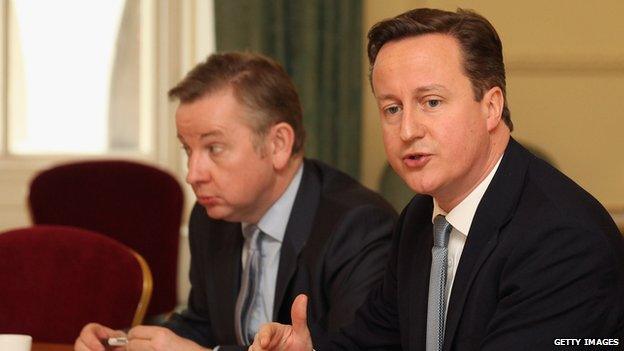
The prime minister ordered a prompt investigation into what had happened
But firstly, Ms Cunningham was talking about a fellow Conservative. And, more to the point, she was really putting the boot in.
It had now gone midnight. Most of the UK was asleep.
But not me, and not Team Gove either.
They were working out what on earth to say and, whilst working it out, had discovered that a letter from Mrs May they'd received some hours earlier had found its way online, onto the government's website.
It was none too complimentary about Mr Gove.
Fast forward another hour or so and Team Gove rang me back.
'Indiscipline'
Believe me, when special advisers call you at 1.30am you know you've got a story on your hands.
They tried to play down any suggestion of a falling out with the home secretary. But it was a bit late for that.
And Downing Street was clearly livid.
Following the Queen's speech, the prime minister was out of the country for a few days at the G7 summit in Brussels and then the D-Day commemorations in France.
But he instructed the government's most senior civil servant to look into what had happened and less than 24 hours after arriving back in the country, the news about what Mr Cameron was doing to deal with it broke.
The prime minister will hope his swift response draws a line under this damaging outbreak of indiscipline at the top of the government.
It is an outbreak provoked by a genuine policy disagreement about extremism - and about the future outlook, and leadership, of the Conservative Party when Mr Cameron is no longer in charge.
- Published8 June 2014
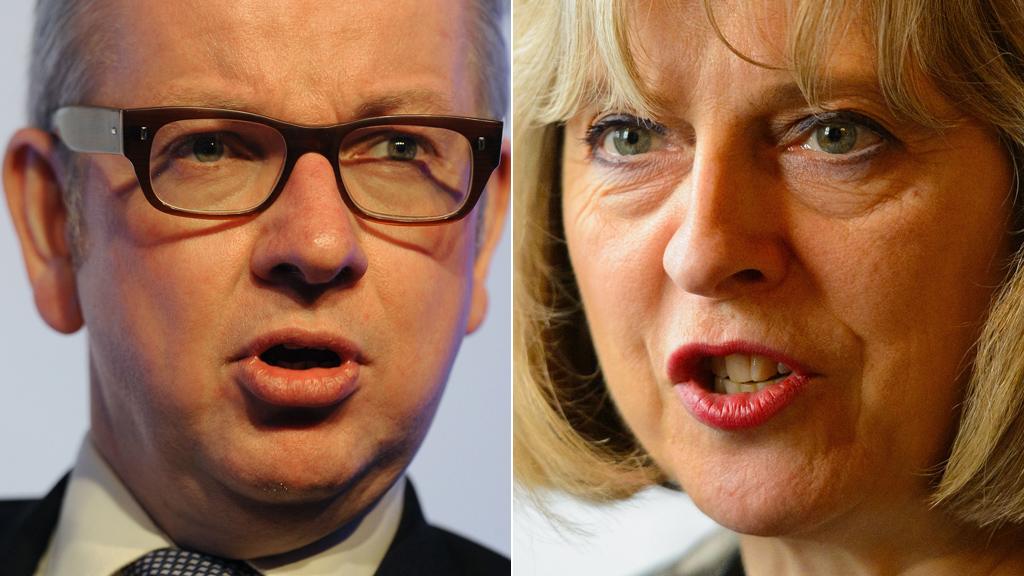
- Published5 June 2014
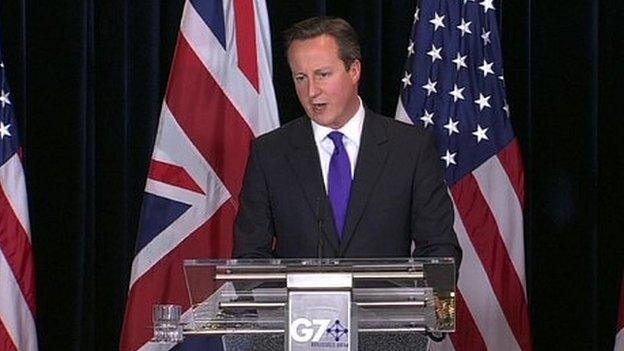
- Published4 June 2014
